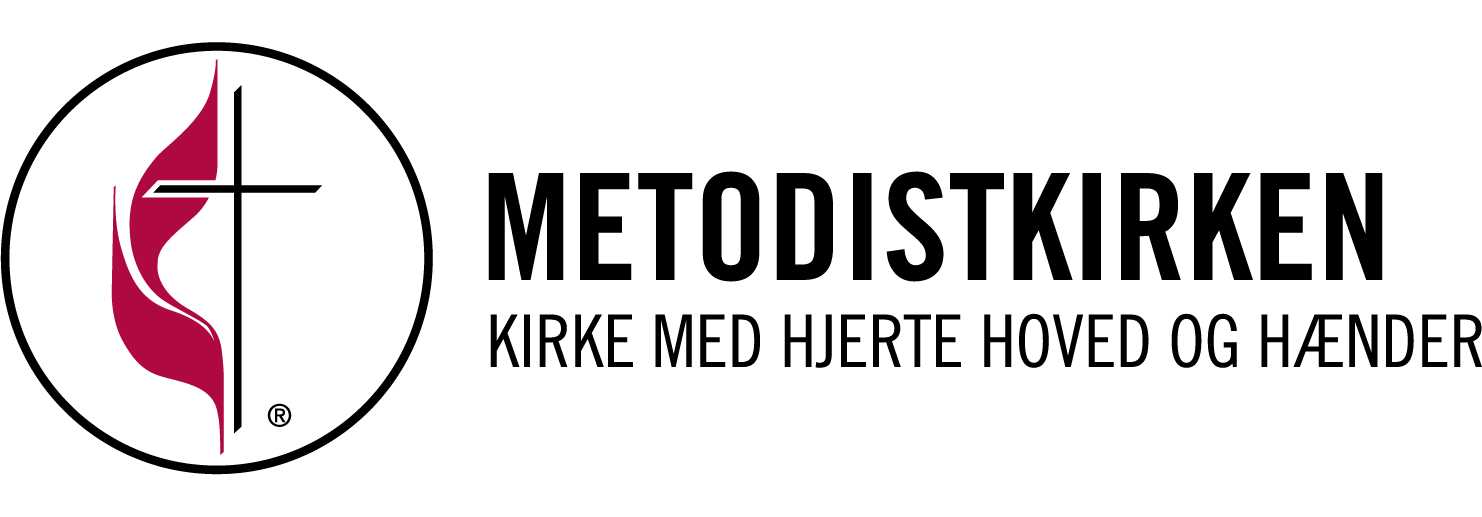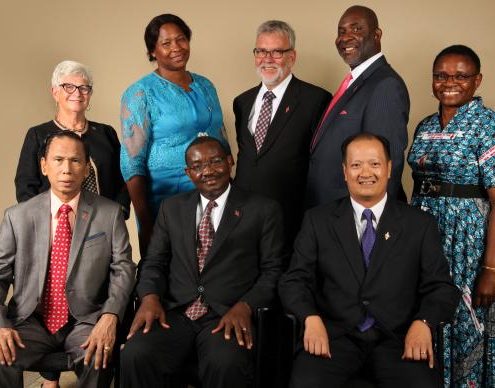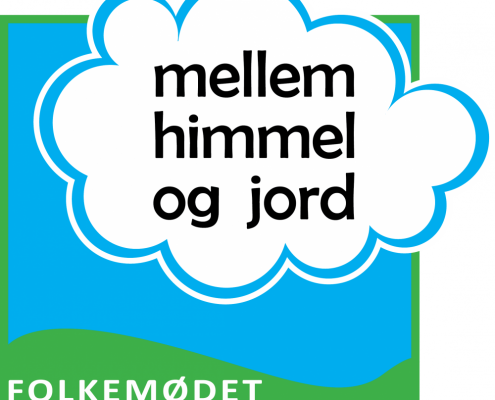Hvordan wesleyansk teologi kan tale om miljøforandringer
Hvordan kan wesleyansk teologi hjælpe os med at tænke over og agere i forhold til klimakrisen? Det forsøger pastor Ole Birch at besvare i denne artikel, der oprindeligt skrevet til “Methodism in a Nordic Perspective” og derfor er på engelsk.
Ole Birch hævder at wesleyansk teologi taler om åndelig forandring, der også kan forandre kulture. At wesleyansk teologi forstår frelse som et kald til gensidig forpligtelse og social hellighed, og at den bibelske forståelse af skabelse holder os fast på, at mennesket ikke er universets centrum – naturen er ikke til for vor fornøjelses skyld, men har værdi i sin egen ret som værende skabt af Gud. Endelig fastholder Ole Birch at vi har ansvar for vores handlinger i naturen, særligt når det leder til klimaændringer, der forværre situationen for fattige mennesker i udviklingslande.
- How to Speak Wesleyan and Biblically about Climate Change
Written by Ole Birch
Methodism, bringing holiness and happiness to all the earth
Methodism cannot be identified in a few sentences. The significance of the work of the founding father of Methodism, John Wesley, and the broad scope of what the people called Methodists have believed, said and done for soon to be 300 years cannot be summed up on a few pages. Nevertheless I think it is fair to say, that one of the central points of John Wesley’s theology and a hallmark of Methodist presence in the world, is the committed involvement in the social challenges of the communities and the times ministered to by the movement. As pointed out by Theodore Runyon in his book The New Creation: ‘For Wesley religion is not humanity’s means of escape to a more tolerable heavenly realm but participation in God’s own redemptive enterprise, God’s new creation, “faith working by love,” bringing holiness and happiness to all the earth’.[1] Runyon’s book explains that Methodism starts in the heart of the believer where God’s grace is effecting justification, regeneration and sanctification, and restoring the image of God. Methodism understands that sanctification involves a holy dissatisfaction with the believer’s own holiness, and that this dissatisfaction acts as a catalyst for change. Moreover, this dissatisfaction is readily transferable from the realm of the individual to that of society.
In other words, the early Methodists, striving to live holy lives, saw the slave trade, and saw that it was unholy and a scandal in the face of God’s purpose for the world. They saw poverty and injustice and they made it their holy business to change themselves and the world.
This has been a living tradition in Methodism ever since, and in our United Methodist Church we take pride in our diaconal social witness. Over time, this witness has developed as new social concerns arose and the church engaged in Biblical and theological reflection and in ministry.
The purpose of this article is, within this longstanding tradition, to introduce examples of how the Wesleyan theology and praxis of covenant, as well as readings in the Old Testament, can relate to climate change, one of the most important challenges that we face in our time.
Climate change
The Social Principals of The United Methodist Church § 160.D Global Climate Stewardship from 2012 says that:
We acknowledge the global impact of humanity’s disregard for God’s creation. Rampant industrialization and the corresponding increase in the use of fossil fuels have led to a build-up of pollutants in the earth’s atmosphere. These “greenhouse gas” emissions threaten to alter dramatically the earth’s climate for generations to come with severe environmental, economic, and social implications. The adverse impacts of global climate change disproportionately affect individuals and nations least responsible for the emissions. We therefore support efforts of all governments to require mandatory reductions in greenhouse gas emissions and call on individuals, congregations, businesses, industries, and communities to reduce their emissions.
In 2016 we can safely say that climate change is no longer just something scientists predict will happen. It is here. Its effects are obvious in our Nordic countries and throughout the world; weather patterns have changed, storms are more frequent and heavier than before and the general temperature is rising. According to the National Weather Service in the US, the winter of 2015 to 2016 has been the warmest ever recorded, and the changes are mostly in the northern regions of the world. The ten warmest winters on record, since recording of temperatures began in 1880, have all occurred between 1995 and today. In Greenland, in the northern most parts of Scandinavia and in the polar area a dramatic development is underway. The polar ice is melting which in the short term is threatening the habitat of the polar bear. The glaciers are melting and there is fear that the enormous icecap of Greenland will do the same, causing rising sea levels around the world. However, these changes, as dramatic as they may seem, are but inconveniences compared to the effects of climate change in other parts of the world. According to the Intergovernmental Panel on Climate Change (IPCC)[2] of the United Nations rising sea level, changing weather patterns and expanding desserts undermine the safety and livelihood of millions of people in Africa and Asia.
Climate change is therefore not just about our relationship with nature, it is also about justice, poverty and the extreme inequality of our world. The main problem concerning climate change is not that the science around it is unclear (it is not) nor that we do not know what to do about it (we do) the real question is only if we are willing to do what needs to be done. The prominent US environmental lawyer and former Chairman of the Council on Environmental Quality, Administrator of the United Nations Development Program, James Gustave Speth, put it this way:
I used to think the top environmental problems where biodiversity loss, ecosystem collapse, and climate change. I thought that with 30 years of good science we could address those problems. But I was wrong. The top environmental problems are selfishness, greed and apathy and to deal with those we need a spiritual and cultural transformation – and we scientists don’t know how to do that.[3]
Is there a message and a force in our world that can overcome selfishness, greed and apathy? Methodism has some experience with spiritual transformation. Actually, that was what John Wesley saw as the main task of the Methodist movement and his theology is an investigation into how God changes people. Can we help bring about a spiritual and cultural change?
Covenant theology and praxis in early Methodism
As pointed out by Jørgen Thaarup,[4] a central element of John Wesley’s theology of salvation is the understanding that humans cooperate with God in salvation. God gives His free grace to all people, and humans respond by receiving this free grace, and having received, humans are encouraged to reach out for more of the grace and thus grow in holiness and sanctification. This synergistic relationship between God and humans is expressed in the Biblical concept of covenant. In John Wesley’s organisation of the religious societies we see this covenant theology put into practice. Jørgen Thaarup underlines that these societies were not focused on any statement of faith or creed that the members where obliged to subscribe to. Instead, Wesley gave society three general rules to live by. ‘Do no harm, do good and attend upon all the ordinances of God’. He also gave instructions concerning the application of the rules. To do no harm concerns evil thoughts and deeds towards your neighbour but also relates to political or economic actions, like buying or selling commodities that were related to the slave trade. To do good is explained as acts of mercy towards needs in the community and acts of justice, which could be addressing prison reform or slavery. In other words, Wesleyan theology and praxis from the beginning of Methodism understood that a Christian must be involved in the political world on the side of justice. Attending to the ordinances of God means using the means of grace that God has given and that the church administrates. Worship, Christian fellowship, prayer, Bible reading, partaking in communion, all these, in Wesley’s understanding, are needed if a Christian shall grow in grace and holiness. It is about living out the faith in a living covenant. This is the purpose of societies, and it is the concrete expression of Wesleyan theology of what the relationship between God and humans is about, a synergistic relationship between God’s free grace and humans’ free will in doing good deeds.
In 1755, John Wesley created the Covenant Service. In this, he speaks of baptism as a seal on a covenant between God and humans. Most of the content of this Covenant Service focuses on the dynamic relationship between God and humans: between free grace and free will. In this sense, Wesley can speak of the relationship between God and humans as a covenantal relationship.
Noah and covenant theology
In the Old Testament, a covenant is a treaty between God and the people he has chosen. God makes promises concerning the welfare and survival of his people and they in turn dedicate themselves to the worship of the one true God. There are several covenants in the Old Testament, a covenant with Cain, a covenant with Noah, a covenant with Abraham, a covenant with Moses and a covenant with David. With Abraham, Moses and David, the covenant was with the chosen people and their leaders, meaning Abraham and his descendants. With Cain, the covenant was about one person. In the case of Noah, the covenant was universal; it covered all of humanity and all of creation. This becomes clear in the words of God in Genesis chapter 9.
God said to Noah and to his sons with him, “I am now setting up my covenant with you, with your descendants, and with every living being with you—with the birds, with the large animals, and with all the animals of the earth, leaving the ark with you. I will set up my covenant with you so that never again will all life be cut off by floodwaters.[5]
Roald E. Kristiansen[6] in 1993 wrote, if not the first, then one of the first books in Scandinavia on theology in light of the ecological challenges. In this book Økoteologi (English: Eco theology) he points to[7] the universality of the covenant between God and Noah, and calls it an eco-covenant. This suggests that a co-reading of the story of Noah in Genesis 9 with the story of creation in Genesis 1 and 2 can help us overcome the pitfalls of traditional creation theology. Historically the accounts of the creation in Genesis 1 and 2 have been misread as if nature was given to humans as a resource for whatever they wanted to do. It was a thing, an object, that only possessed value to the degree it was useful to humans. The concept of humans as the stewards in charge of God’s creation in Genesis 1 needs to be balanced with the covenant promise of God to uphold all creation. A promise not just to Noah, and not just too all people, but also to all the living creatures and earth itself: that they all have His blessing to live, to exist.
Roald E. Kristiansen expresses[8] the hope for the development of a covenantal theology and covenantal ethics which can motivate the consciousness and responsibility among Christians so that they will care, not just for humanity, but also for all of creation.
God cares for the land and the poor
Another theologian that sees covenant theology at the centre of the discourse, when talking about theology and climate change, is the Anglican Bishop David Atkinson. His book Renewing the Face of the Earth investigates how the language associated with a covenant throughout the Bible can inspire us to be good stewards of creation. The covenant of God with Abraham is about a family and a land. God blesses Abraham with a son and through the son a family and a nation of descendants. God also promises Abraham land. When the story of Abraham’s descendants has moved forward until the great speeches of Moses in Deuteronomy, just as they are about to take the promised land into possession, it becomes clear, that God’s blessing by the land, is also a blessing of the land. God cares for the land!
…the land you are entering to possess is a land of hills and valleys, where your drinking water will be rain from heaven. It’s a land that the Lord cares for: the Lord’s eyes are on it constantly from the first of the year until the very end of the year. Deut. 11, 11-12
The land, then, becomes a powerful and important symbol of God’s covenanted blessing of his people.
…the Lord your God is bringing you to a wonderful land, a land with streams of water, springs, and wells that gush up in the valleys and on the hills; a land of wheat and barley, vines, fig trees, and pomegranates; a land of olive oil and honey; a land where you will eat food without any shortage – you won’t lack a thing there – a land where stone is hard as iron and where you will mine copper from the hills. You will eat, you will be satisfied, and you will bless the Lord your God in the wonderful land that he’s given you. Deut. 8, 7-10.
The land and the righteousness of the people are tied together. Living in the blessed land is conditioned by the obedience of the people to God’s law.
Righteousness! Pursue righteousness so that you live long and take possession of the land that the Lord your God is giving you. Deut. 16, 20.
Failure to live faithfully and justly will also have consequences for the land. In chapter 28, Moses speaks of curses that will fall upon both the people and the land ‘scorching heat and drought; with destruction and disease for your crops’ (v.22) if they are not faithful and righteous.
David Atkinson refers[9] to Christopher Wright’s identification of two triangles in the language of covenant in the Bible. The smaller triangle describes the elements of the covenant between God and his chosen people: God – Israel – land. This covenant must be understood within the much larger triangle of covenantal relationship between God – all humanity – the whole world. The significance of this is that, what we learn of God’s blessing of the land for Israel gives us a clue as to God’s blessing of the whole earth. What we learn about the call to righteousness of God’s people is an inspiration for the whole of humanity.
Given the fact that the poorest nations and people of the world are the ones that will feel the effects of climate changes the most, David Atkinson investigates[10] how the prophet Amos speaks of justice for the poor. In Amos’ message to live in the covenant it is not just to obey the law, it is to live holy because God is holy. To be a covenant people is to honour God’s holiness, justice and righteousness by upholding justice and righteousness for the poor. Amos gives us the core of his message in the powerful statement: ‘Let justice roll down like waters, and righteousness like an ever-flowing stream’.
The scale of creation
The final theologian I wish to present in this article would properly not call himself a theologian. Bill McKibben is a journalist, author, climate activist and founder of 350.org, an NGO that has been very effective in using the internet in mobilising grass-root involvement around climate change throughout the world. He is also a Methodist Sunday school teacher from Vermont (USA) who knows his Bible and relates the Biblical stories to his climate activism. Bill McKibben has written a large number of books on environmental issues, but in 2005, he published a small book on the Old Testament book of Job called The Comforting Whirlwind. Bill McKibben reads Job as a book on humans in their relationship to creation and he argues that[11] the message of God’s answer to Job at the climax of the book is a message for our time and climate crises.
In Job, we find a man suffering hard, having lost everything: his children, all his wealth and his health. Three friends come to visit with him. First, they are in silent solidarity with Job for 7 days. Then Job opens his mouth, laments the cruel fate that has put him in such suffering and curses the day he was born. There is a 37 chapter long discussion between Job and his friends as to why Job is suffering. The core of this discussion is the attempt by the friends to apply the conventional wisdom of their time, that suffering is caused by sin, on Job’s situation, and then Job’s rejection of having done anything wrong. McKibben sees this insisting on a narrow orthodox interpretation by the friends as a parallel to the way our modern societies have made consuming into the essence of being. Everywhere in the world, and especially in the Western world, we are encouraged to focus on ourselves and consume everything we desire. Moreover, this self-indulgence of humankind becomes an exploitation of the natural resources of our planet to an unsustainable degree.
At the climax of the book of Job, the tormented Job demands that God answers the questions of his suffering. Then God appears and speaks from a whirlwind. God rejects the wisdom of Job and his friends, and gives an answer that does not seem to be an answer. Instead, He, with deep sarcasm, invites us on a tour of his creation
Where were you when I laid the earth’s foundations? Tell me if you know.
Who set its measurements? Surely you know.
Who stretched a measuring tape on it?
On what were its footings sunk; who laid its cornerstone, while the morning stars sang in unison and all the divine beings shouted?Who enclosed the Sea behind doors when it burst forth from the womb, when I made the clouds its garment, the dense clouds its wrap, when I imposed my limit for it, put on a bar and doors and said, “You may come this far, no farther; here your proud waves stop”?
In your lifetime have you commanded the morning, informed the dawn of its place so it would take hold of earth by its edges and shake the wicked out of it? Job. 38
McKibben observes that[12] God is describing a world without people. Creation and the unending sustaining of life that God speaks of unfolds in a world before or without humans. Humans are small or insignificant in the world that God speaks of here. That, and the dramatic scale of creation and the immense power behind God’s actions, puts humans in their place. McKibben’s message is clear. Creation is not an object for humans to exploit; it is the subject of God’s mighty actions in creating and sustaining life. God makes it rain even though no humans will benefit from it. God makes the wilderness blossom, what could more clearly rebut the notion that we humans are forever at the centre of all affairs, McKibben asks. It seems that God’s answer to Job’s complaint about his cruel fate is this: Who are you to ask such questions? Why do you presume that your life is so important, that the one who ‘Can bind Pleiades’ chains and loosen the reins of Orion’ should be troubled?
In other words, humans are not the centre of the universe, they have a place in creation, and for that, they must be thankful. McKibben notes that[13] Job understands the meaning of God’s answer. He responds with humility, a character trait that modern humans need to embrace too in their approach to nature.
Summary
The purpose of this article has been to point out, to preachers and pastors, as well as other interested persons, how Wesleyan and Biblical theology speaks to our current environmental and climate crises. Now, how does it speak?
- It speaks of a theology of a spiritual transformation that can change cultures.
- It speaks of an understanding of salvation that includes a call to covenant and social holiness.
- It speaks of the Biblical concepts of creation and covenant. These concepts point us towards a renewed understanding of our relationship to nature. We are not the centre of the universe. Nature is not just there for our pleasure, it has its own value as God’s creation. We are responsible for our actions in nature, especially when it comes to how we have changed the climate, worsening the situation for poor people in third world countries.
Now the time has come for you to consider, before God, all this in light of John Wesley’s questions when he gathered his preachers:
What to teach?
How to teach?
What to do?
Bibliography
Atkinson, David. Renewing the Face of the Earth. Norwich: Canterbury Press, 2008.
Kristiansen, Roald E. Økoteologi. Frederiksberg: Forlaget ANIS, 1993.
McKibben, Bill. The Comforting Whirlwind. God, Job and the Scale of Creation. Cambridge: Cowley Publications, 2005.
Runyon, Theodore. The New Creation. John Wesley’s Theology Today. Nashville: Abingdon Press, 1998.
Thaarup, Jørgen. Med venner i lys vi tale. Strandby: Forlaget Trofast, 2016.
The Book of Discipline of the United Methodist Church. Nashville: The United Methodist Publishing House, 2012.
[1] Theodore Runyon, The New Creation. John Wesley’s Theology Today (Nashville: Abingdon Press, 1998), 169.
[3] http://fore.yale.edu/news/item/religion-rejuvenates-environmentalism/
[4] Jørgen Thaarup, Med venner i lys vi tale (Strandby: Forlaget Trofast, 2016) 241ff.
[5] All bible quotes are from the Common English Bible.
[6] Roald E. Kristiansen, Økoteologi (Frederiksberg: Forlaget ANIS, 1993).
[7] Kristiansen, Økoteologi. 68-72.
[8] Ibid., 72.
[9] David Atkinson, Renewing the Face of the Earth (Norwich: Canterbury Press, 2008),
43.
[10] Atkinson, Renewing the Face, 94-102.
[11] Bill McKibben, The Comforting Whirlwind. God, Job and the Scale of Creation (Cambridge: Cowley Publications, 2005), 25.
[12] Ibid., 27.
[13] Ibid., 27.






